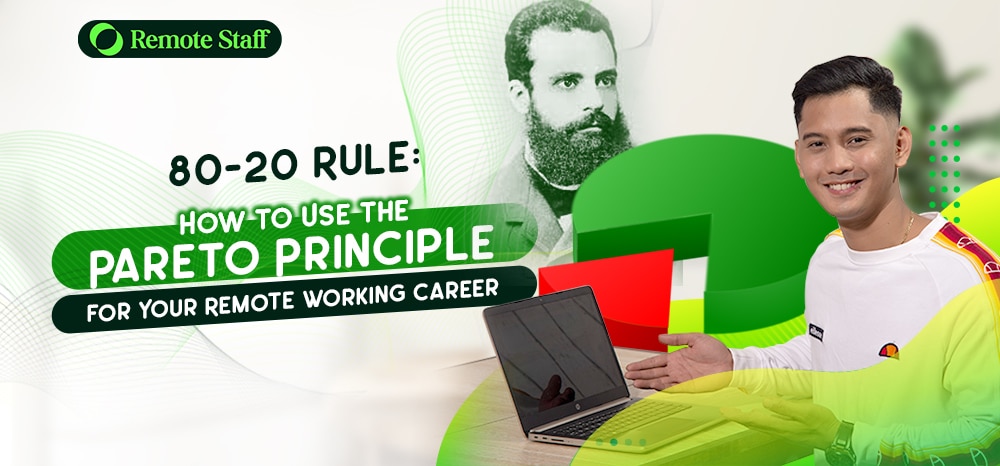Are you having too many tasks at hand? Emails, deadlines, campaigns, and more. Which one will you prioritize? Can you still handle everything with your limited time?
You might need to focus on the most crucial tasks. And the Pareto Principle will help you with that! Here’s how to use the Pareto principle for your remote working career.

What’s the Pareto Principle?
No. It’s not a miracle food for your career. But it will certainly power up your productivity.
The Pareto principle was discovered by economist Vilfredo Pareto. He observed that 20% of the pea pods in his garden were responsible for 80% of the peas. And later on, he applies this ratio to land ownership. He found out that 80% of the land in Italy was owned by 20% of the population.
He then created the Pareto principle stating that 80% of the outputs are caused by 20% of the inputs.
This ratio was even present not only in wealth distribution but in top performers in a company, top products that are selling, and more.
And it also appears in our productivity. It shows that 80% of the results are attributed to 20% of the tasks done. It asserts that not all our inputs create an equal output. After all, some tasks create more value over others.

Get the Most Out Of Your Time
With this in mind, you need to assess your current tasks. What tasks give the best results? Is it emailing and sorting your list? Or is it creating marketing campaigns and articles? Probably, the latter. You would know.
By focusing on the task that only you can do, you can create more value for your clients. That’s probably your 20% that will generate 80% of the results.
It will be even better when combined with time blocking and deep work because you will have an intentional schedule for it.

Not an Exact Ratio
So what if you’re handling a lot of tasks. Do you really need to pinpoint just the exact 20% that will give value? Not exactly.
The Pareto principle doesn’t say that it should be precisely 20%. It can be 30% of your tasks or even 28.65%. It doesn’t matter.
What matters is knowing what tasks can give the best value — and prioritizing those tasks in your schedule.

Not an Excuse to Do Only the 20%
Perfect! Now that you know the 20% that will give 80% of the results, should you just forget the remaining 80%? The answer is no. You still need 100% to become successful.
So for the remaining 80% of tasks, you can allot less time for it. Or better yet, you can delegate it (if it’s an option). In this way, you know that your 80% lesser value tasks are covered.

Conclusion
Are you ready to apply the Pareto Principle in your career? Knowing this principle will surely boost your productivity for the things that matter most. Cheers to an extraordinary remote working career!

